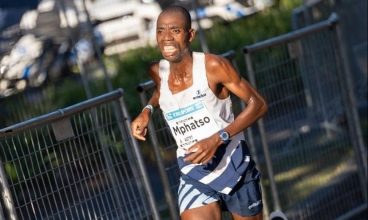APM delves into global policy with local touch
President Peter Mutharika’s address at the United Nations (UN) on Tuesday forcefully sought a place for Malawi in the global policy shaping arena as much as it espoused domestic policy, the country’s development strides, priorities and challenges.
From a firm position on ending conflicts, to a call for investments in global education and what should be done to make the Sustainable Development Goals (SDGs) more meaningful than their predecessors Millennium Development Goals (MDGs), Mutharika presented a nuanced speech at a global stage on a subject—international affairs—that he is intellectually comfortable with.

dealt with
Critics, however, may say the President avoided meaningfully discussing the country’s outstanding human rights issues with specifics, including the handling of politically linked crimes such as the alleged murder of Polytechnic student Robert Chasowa during the first Democratic Progressive Party (DPP) regime under his brother Bingu wa Mutharika.
But the President, speaking at the 70th UNGA in New York, made an interesting link between human rights and Cashgate, telling the (UNGA) that corruption and theft of public resources in Malawi threatens the enjoyment of people’s human rights.
“Full enjoyment of people’s human rights could not be achieved in a society full of fraud, corruption and theft of public resources. These vices must be dealt with in order to protect people’s human rights and ensure delivery of expected service from their government,” the President said in a speech made available to The Nation.
The slow rate of prosecution of suspected master minders of Cashgate, which resulted in the loss of hundreds of billions of kwacha from public coffers, has been a concern to many observers, among them contributors to the government budget.
Not satisfied by the safety of their money, donors have opted for off-budget financing through ring-fenced basket funding, projects and dedicated grants in which Capital Hill has no direct control and whose capture in the country’s economic programme is hard largely because of lack of harmonisation.
He assured the UNGA that his government was committed to fulfilling its international and national responsibility of protecting people’s human rights and rule of law. He said Malawi would continue to do so even in the face of corruption and fraud.
Currently, there is an ongoing forensic audit covering the period 2005 to 2014 which is expected to expose more fraudulent activities following the preliminary findings that K577 billion could not be accounted for in the government coffers during the five-year period between 2009 and December 31 2014.
The National Audit Office (NAO) is expected to release a report on the audit, which is being carried out with financial assistance from the government of Germany, by April next year.
On balance, yesterday’s UNGA speech was one of the clearest, coherent and focused addresses he has made in his 16-month presidency, especially when he touched on global security and the new global development goals and targets.
Mutharika had a philosophical take on world peace and how to reform the UN Security Council.
“We cannot realise a complete sense of peace without justice, dignity and freedom.
“We can rejoice that in the seventy [70] years of the work of the UN, we have collectively averted another world war, however, during the same period, we have lived in fear, and uncertainty, in a world tainted by conflicts, poverty and violence that have endangered our own existence,” said Mutharika.
On reforming the UN Security Council, the President said he has closely monitored the intergovernmental negotiations on how the Security Council can be reformed to make it more representative, effective, transparent and accountable to all.
He called for wider reforms of the UN Security Council and urged peace missions to focus on political solutions and conflict prevention.
He said: “There is need for comprehensive peace and security partnerships involving the United Nations Security Council, regional actors and national mechanisms.
“The UN should take the responsibility to compensate the abused. There is greater need for political will by all actors to peace missions, to just mention a few.”
But he cautioned that “our quest for peace and security should be hinged on sustainable socioeconomic development for our people; development that has a true meaning and reflection in the lives of our people.”
Mutharika thus commended the adoption by world leaders of the 17 Sustainable Development Goals (SDGs), which have replaced Millennium Development Goals (MDGs) effective this year.
Although Malawi only managed to achieve four of the eight goals, Mutharika pledged that with the SDGs, women and children would not be left behind.
However, he expressed reservations with SDG 4 on ensuring inclusive and equitable quality education in promoting lifelong learning, arguing it did not fully capture the centrality of higher education to achieving the wider SDG targets.
Yet, his administration is currently reeling from the backlash of its decision from some activists to scrap government sponsorship and leave it at K275 000 tuition fees for all students in public universities.
Mutharika returns home this Sunday after a schedule that, apart from the UNGA address, saw him present a paper to members of the Council on Foreign Relations on the topic Democratisation and Self-Reliance in Africa: The Case of Malawi.





